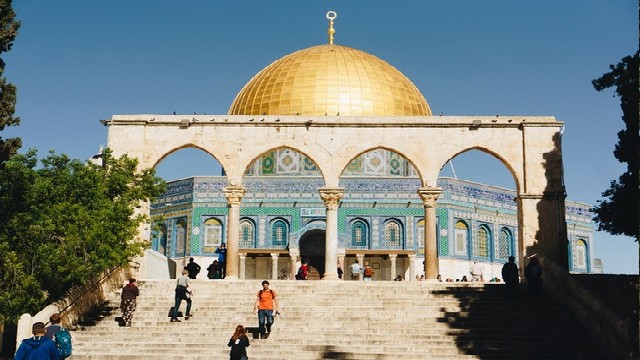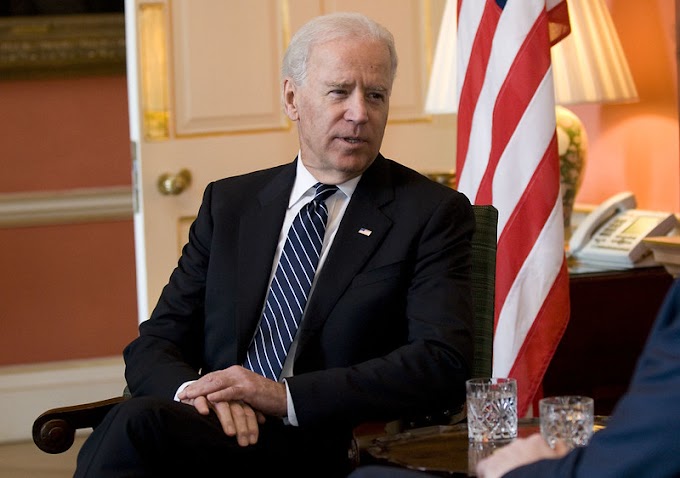What's new in the new US policy on Palestine and Israel?
One of the few things that
President Trump hastened to do this in the last days of his presidency was to help
establish diplomatic relations with some of Israel's Arab states.
These states include the United Arab Emirates, Bahrain, Sudan, and Morocco.
Ironically, Trump's "accomplishment" was hailed as a historic step
toward resolving the Palestinian-Israeli conflict.
The Palestinians were nowhere
in this "historic step". However, in this historic step, there was no
mention of him and no role. Obviously, this process damaged Palestinian-US
relations, but the damage was limited to what the Palestinians could
afford. Proud of his accomplishments, Donald Trump left Washington.
Contrary to Trump's policy, newly
elected US President Joe Biden has begun the process of restoring relations
between the United States and Palestine. The basis of this policy
was the ancient "two-state concept". Taking advantage of his
experience on this front, and working very fast, by mid-April Joe Biden had
changed a lot.
He restored billions of dollars
in US aid to the Palestinians. Announced several development projects. On the
basis of humanitarian sympathy, he restored some old programs and expressed his
intention to start some new ones, and above all, he re-established the peace process between Israel and Palestine.
In this regard, he called for the
establishment of two states in the region as a solution to the Israeli-Palestinian
conflict in the light of the old US policy. The two-state solution proposed by
President Biden in light of his long experience has already been the subject of
lengthy diplomacy, and he is aware of the details. Behind this are agreements
such as the Oslo Accords, which were once considered a great step towards
peace, but in changing circumstances, many believe that the two-state solution
is an old formula that is changing. Does not correspond to objective
conditions.
There is no shortage of Palestinians
who think that the two-state solution may not be as viable or useful in the
changing circumstances. He says there is a need for a solution that is based on
the idea of a fully democratic state based on freedom, equality, and justice,
rather than separating Israelis and Palestinians.
Hopefully, behind that is the
long American experience. However, John Kerry, an ardent supporter of the
solution, warned in 2013 that a two-state solution would no longer exist as an
option in two years and that the window would close. The question now is
whether Biden's keen interest and enthusiasm can reopen the window.
The two-state solution is not
only the preferred solution of the Americans, but in a sense, it has been a
common preferred solution of the international community. As a preferred
solution for the international community, it has also had the support of the UN
General Assembly in the 1970s.
There have been dozens of
negotiations and agreements since the 1970s, with the solution as the only
viable option. These include famous records and negotiations in Oslo, Camp
David, Taba, and Annapolis. In the background of these records, there was great
pressure from the world, under which Israel was forced to accept a
two-state solution, but on the other hand, it continued to use force and
coercion to change the ground realities before the eyes of the world. In The 1970s, this solution emerged as the only viable solution.
The world has changed a lot since
then. Half a century has passed. During this time, the realities on the ground
within Palestine and Israel have changed dramatically.
The situation is that more than seven million Jews have settled in the West
Bank and East Jerusalem.
In the West Bank, on the other
hand, Palestinians are being forced to live like prisoners of war.
Their settlements are surrounded by walls and bare fences over thirty feet
high. And the ghettos and settlements around them are growing, and Israel
is active in resettling Jewish settlements in the occupied territories, in
violation of UN resolutions at the state level. In these circumstances, for
some people, two states would mean the domination of one state in the region,
under which a weak and unequal Palestinian government would be
established in the name of another state.
Such an arrangement would be
nothing more than a racial divide between two states. It will be an arrangement
in which the Palestinian people will not be able to live with dignity.
In view of this fear, the views of young Palestinians are rapidly changing.
Some polls and surveys show that young Palestinians are more interested in
their basic rights, freedoms, and better living standards than in a separate
state.
According to these polls, there
is a growing tendency among young Palestinian leaders to protect their
rights through the Universal Declaration of Human Rights, and other
institutional and legal means. But the problem is that Israel's right-wing
extremist strong Thinking on religious and ethnic grounds, not ready to accept
the Palestinians
in a state and give them the right place they deserve.
The situation is that more than
7.3 million Palestinians live in Israel and the West Bank. Some of
them are Israeli citizens, some are not, and given the proportion of
their population growth, it will not be possible for Israel to deny their
rights after some time. Despite the changing realities on the ground between Israel
and Palestine and the thinking of the younger generation.
President Joe Biden's memo on the
issue emphasizes that US policy revolves around a "two-state
solution." To be arranged According to the memo, the Biden
administration's goal is freedom, security, and prosperity for both Israel
and Palestine, which should be used for a two-state solution.
Under the new normal conditions,
not only peace in Israel and Palestine can be promoted, but also the living
standards of the Palestinians can be improved. Thus, there is nothing new in
this new American policy. It is a reference to the "position paper"
of the Obama era, and an expression of President Joe Biden's policy of
maintaining and restoring "status" in world politics.
Any positive change in the living
conditions of the Palestinians is possible only through a change in their
thinking and style of politics. This can only happen when the enlightened,
democratic and peace-loving forces are united, and they have the power to make
decisions in the democratic process.







